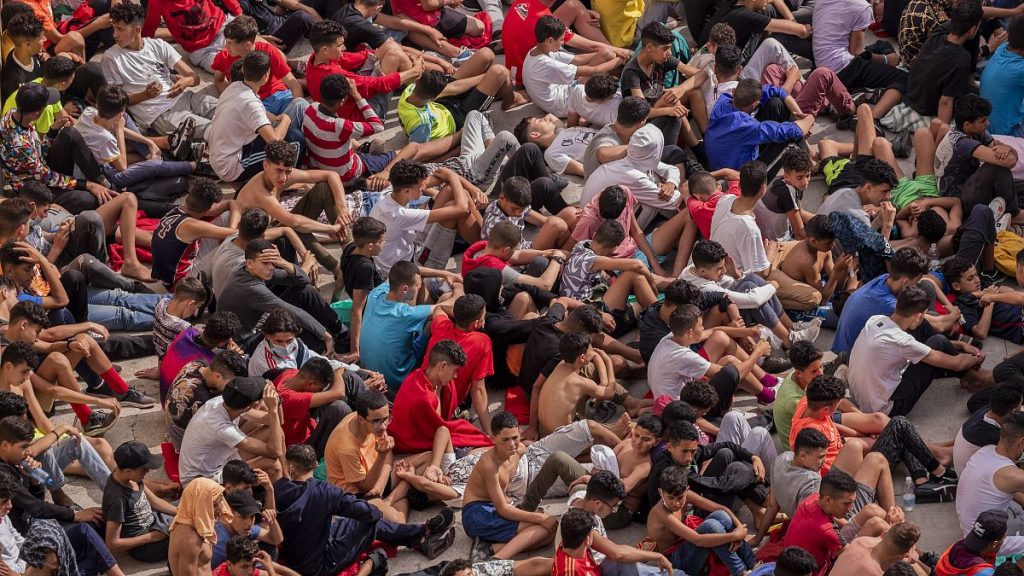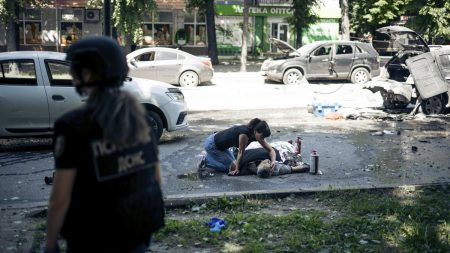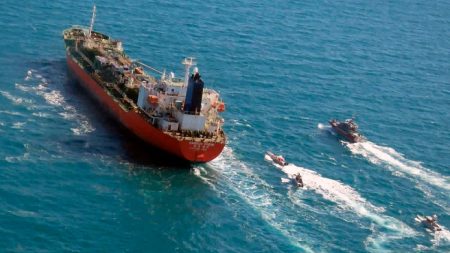The perilous journey across the Mediterranean for migrants and refugees continues to claim lives, with a particular focus on the vulnerability of unaccompanied minors. Recent shipwrecks off the coast of Tunisia, a frequent departure point for those seeking refuge in Europe, tragically highlight the risks. Among the victims were women and children, underscoring the desperate circumstances driving individuals and families to embark on these dangerous voyages. The accounts of surviving children, including an eight-year-old girl separated from her mother and an eleven-year-old girl sole survivor of a capsized vessel, paint a stark picture of the human cost of this ongoing crisis. These incidents underscore the urgent need for increased international cooperation and a more humane approach to migration management.
The International Organization for Migration (IOM) paints a grim statistical picture, reporting over 2,275 missing migrants in the Mediterranean in 2024 alone, adding to a staggering total exceeding 31,000 since 2014. The central Mediterranean route, predominantly exploited by smugglers operating from Libya and Tunisia, remains the deadliest passage. The IOM’s figures represent not just statistics, but individual lives lost, families torn apart, and dreams shattered in the pursuit of safety and a better future. The persistent high number of fatalities underscores the inadequacy of current preventative measures and the urgent need for more effective search and rescue operations.
UNICEF, the UN children’s fund, has responded to these recent tragedies with a call for governments to prioritize the safety and well-being of migrant children. Their appeal centers on upholding international legal obligations towards refugees, particularly regarding the protection of minors. UNICEF’s recommendations encompass a range of crucial measures, from establishing safe and legal pathways for family reunification to strengthening search and rescue efforts and ensuring safe disembarkation procedures. They also emphasize the importance of providing comprehensive support services for children and families who survive the perilous journey, including psychosocial support, legal aid, healthcare, and access to education. This holistic approach recognizes the multifaceted needs of these vulnerable populations and aims to mitigate the long-term impacts of trauma and displacement.
European governments are grappling with the complex challenges of managing migration flows, with varying approaches and priorities. Italy, under Prime Minister Giorgia Meloni, has adopted a stricter stance, focusing on cracking down on smuggling operations and exploring external processing of asylum claims. This approach, while aimed at deterring arrivals, raises concerns about its potential impact on the rights and protection of asylum seekers, particularly vulnerable individuals like unaccompanied minors. The differing responses across European nations highlight the need for a more unified and coordinated approach to address this shared challenge.
Data from Eurostat, the EU’s statistical agency, reveals a significant decrease in asylum applications from unaccompanied minors across the European Union since the peak in 2015. While Italy and Greece received over 2,000 applications each in 2023, Spain registered a significantly lower number, highlighting the uneven distribution of arrivals across member states. The overall decline in applications, while potentially reflecting shifting migration patterns and external factors, also raises questions about access to asylum procedures and the potential for increased vulnerability of children undertaking these journeys. Further investigation is needed to understand the underlying reasons behind these trends and ensure adequate protection measures are in place.
The efforts of organizations like Caminando Fronteras (Walking Borders) provide crucial insights into the ongoing crisis. Their reports, documenting the tragic loss of thousands of lives attempting to reach Spain by sea, underscore the continuing dangers faced by migrants. Their work highlights the necessity of continued monitoring and advocacy to ensure the human rights of migrants are respected and protected. The combined efforts of international organizations, NGOs, and governments are crucial in addressing the multifaceted challenges of migration and finding sustainable solutions that prioritize human dignity and safety.










